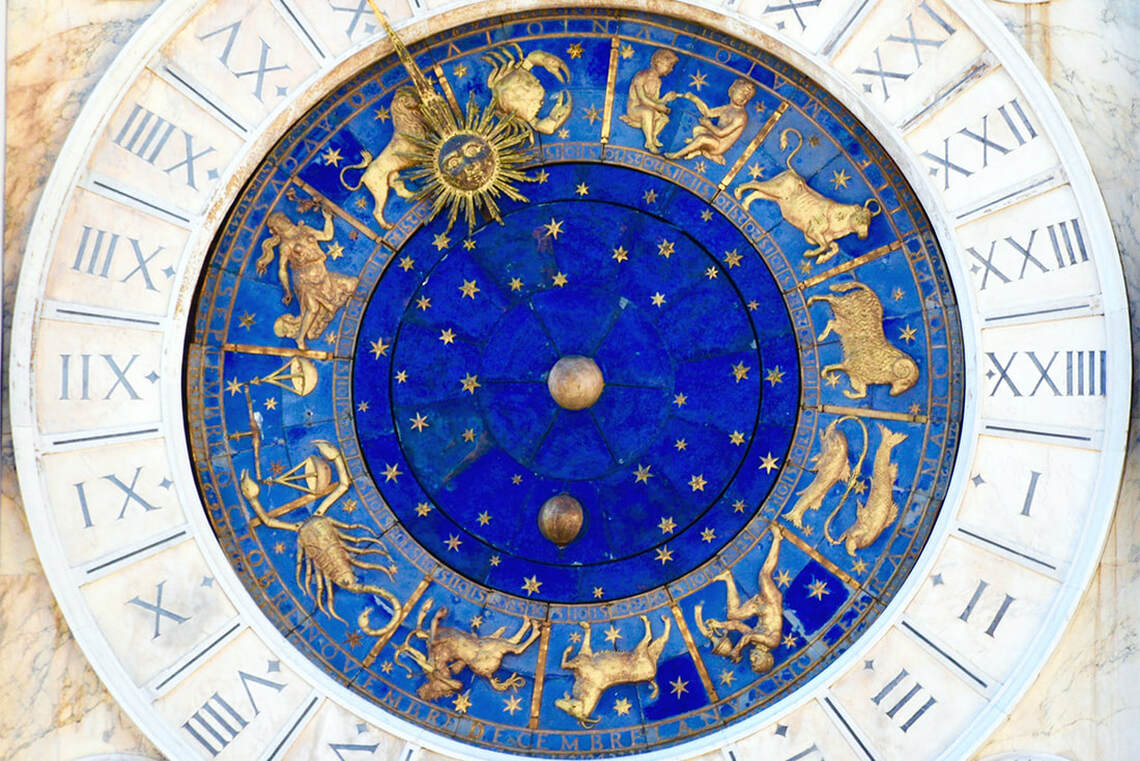Presented by Richard Tarnas, Keiron Le Grice and Safron Rossi
This lecture series forms part of The Assisi Institute Roots of the Matter Public Lecture Program.
Tuition: $125
Dates & Times:
All lectures take place live via Zoom over three consecutive Thursdays: February 10th, 17th and 24th, 2022
8:00pm to 9:30 pm US Eastern Time, with time for questions afterwards.
If you are not able to join the live sessions, please note that the lectures will be recorded and all registered participants will receive the recordings afterwards.
This lecture series forms part of The Assisi Institute Roots of the Matter Public Lecture Program.
Tuition: $125
Dates & Times:
All lectures take place live via Zoom over three consecutive Thursdays: February 10th, 17th and 24th, 2022
8:00pm to 9:30 pm US Eastern Time, with time for questions afterwards.
If you are not able to join the live sessions, please note that the lectures will be recorded and all registered participants will receive the recordings afterwards.
“Astrology represents the sum of all the psychological knowledge of antiquity.”
C.G. Jung, The Spirit of Man, Art and Literature, Collected Works, Vol.15
Carl Jung committed his life to exploring a collective unconscious which he found threaded through all of human history. A pioneer in the domain of Psyche and in the field of psychotherapy, Jung discovered astrology through the study of ancient religions where the fate of a person’s life was read in a natal chart by the position of the planets.
Fate in psychological terms represents being taken by an archetypal field (entrainment) where unconsciously one is compelled towards a specific life pattern. It is known that Jung used astrology in his clinical practice and given the stone carvings he created at Bollingen, books he left in his library and even The Red Book itself, it is clear that he viewed astrology as a threshold for understanding the movement and shifts occurring in the psyche, and to consciously transform one’s fate into the pursuit of one’s innate destiny.
Jung understood synchronicity as a relationship between the inner psychic world and the outer physical world, which is also a meaningful way to understand astrology. The planets symbolically represent an activated archetypal energy which is manifested in individual and collective behavior.
In this way, the study of astrology is similar to the study of a myth or a dream. The placement of the planets can be read in the same way The Assisi Institute guides the Archetypal Pattern Analyst to read patterns in nature, and identify the charged archetypal field activated and now manifesting these dynamics.
In this series, presented by Rick Tarnas, Keiron Le Grice and Safron Rossi, we will learn how the planetary positions have reflected historical epochs and tell of personal myths. From the collective to the personal, the knowledge of archetypal astrology symbolizes the soul of the cosmos in the inner psyche of everyone.
The Lectures
Thursday, February 10, 2022 8:00 pm - 9:30 pm US Eastern Time
An Introduction to Archetypal Astrology
Presented by Richard Tarnas
“Our psyche is set up in accord with the structure of the universe, and what happens in the macrocosm likewise happens in the infinitesimal and most subjective reaches of the psyche.” - C. G. Jung, Memories, Dreams, Reflections
Jung was the first modern psychologist to suggest that astrology possesses an extraordinary capacity to illuminate the archetypal dynamics of the human psyche. His lifelong astrological researches influenced his understanding of archetypes, synchronicity, and the non-local nature of psyche. Over the past several decades, the field of archetypal astrology has become a significant focus of interest for both therapists and astrologers, widely discussed in Jungian communities, and taught at Jung-influenced graduate programs such as at CIIS and Pacifica.
Join Richard Tarnas as he sets out an overview of archetypal astrology, describing its basic principles and its emerging vision of an underlying resonance between the human psyche and the cosmos, based on precise correlations between specific planetary alignments and corresponding archetypal patterns in human experience, both individual and collective.
Thursday, February 17, 2022 8:00 pm - 9:30 pm US Eastern Time
Archetypal Astrology, Mythology, and Individuation
Presented by Keiron Le Grice
Archetypal astrology offers a way of understanding our individual relationship to the universal principles and archetypal themes symbolized in myth and religion. Focusing especially on the significance of the planetary archetypes Saturn, Uranus, Neptune, and Pluto, this lecture addresses the place and potential of astrology as a “meta-mythology”, and as a guide to the process of psychological development that C. G. Jung called individuation.
Suggested Reading for this lecture:
Jung, Carl Gustav. Jung on Astrology. Edited by Safron Rossi and Keiron Le Grice. Abingdon, UK: Routledge, 2017. (See especially, Introduction, Part I and Part IV) (Le Grice’s introductions in this book are also included in Le Grice, Archetypal Cosmology and Depth Psychology: Selected Essays. Ojai, CA: ITAS publications, 2021.)
Le Grice, Keiron. The Archetypal Cosmos: Rediscovering the Gods in Myth, Science and Astrology. Edinburgh, UK: Floris Books, 2010.
———. “The Birth of a New Discipline: Archetypal Cosmology in Historical Perspective.” In Archetypal Cosmology and Depth Psychology: Selected Essays. Ojai, CA: ITAS Publications, 2021.
Thursday, February 24, 2022 8:00 pm - 9:30 pm US Eastern Time
Waves Become Wings: Neptune, Betrayal and the Myth of Ariadne
Presented by Safron Rossi
The ancient Greek poet Sappho once sung, “I do not know what to do/two states of mind in me.” These lines express an essential quality of Neptune, whose archetypal themes belong to the watery realm where contradictions undulate. In this province inspiration, compassion and faith exist right alongside sacrifice, illusions, and confusion.
It is also in this Neptunian field that we find another essential pairing - trust and betrayal. Neptune’s signature in our birth-charts shines a light on where we have a sense of deep trust and faith and, at the same time, where we experience betrayal and delusion.
As myth helps us deepen our understanding of this planet’s archetypal pattern, during this seminar we will look to Ariadne, the mistress of the labyrinth. Her story helps us imagine into the psychological and emotional experiences around Neptunian betrayal, the falling apart that it so often precipitates, as well as the possibilities of the healing that may ensue.
Fate in psychological terms represents being taken by an archetypal field (entrainment) where unconsciously one is compelled towards a specific life pattern. It is known that Jung used astrology in his clinical practice and given the stone carvings he created at Bollingen, books he left in his library and even The Red Book itself, it is clear that he viewed astrology as a threshold for understanding the movement and shifts occurring in the psyche, and to consciously transform one’s fate into the pursuit of one’s innate destiny.
Jung understood synchronicity as a relationship between the inner psychic world and the outer physical world, which is also a meaningful way to understand astrology. The planets symbolically represent an activated archetypal energy which is manifested in individual and collective behavior.
In this way, the study of astrology is similar to the study of a myth or a dream. The placement of the planets can be read in the same way The Assisi Institute guides the Archetypal Pattern Analyst to read patterns in nature, and identify the charged archetypal field activated and now manifesting these dynamics.
In this series, presented by Rick Tarnas, Keiron Le Grice and Safron Rossi, we will learn how the planetary positions have reflected historical epochs and tell of personal myths. From the collective to the personal, the knowledge of archetypal astrology symbolizes the soul of the cosmos in the inner psyche of everyone.
The Lectures
Thursday, February 10, 2022 8:00 pm - 9:30 pm US Eastern Time
An Introduction to Archetypal Astrology
Presented by Richard Tarnas
“Our psyche is set up in accord with the structure of the universe, and what happens in the macrocosm likewise happens in the infinitesimal and most subjective reaches of the psyche.” - C. G. Jung, Memories, Dreams, Reflections
Jung was the first modern psychologist to suggest that astrology possesses an extraordinary capacity to illuminate the archetypal dynamics of the human psyche. His lifelong astrological researches influenced his understanding of archetypes, synchronicity, and the non-local nature of psyche. Over the past several decades, the field of archetypal astrology has become a significant focus of interest for both therapists and astrologers, widely discussed in Jungian communities, and taught at Jung-influenced graduate programs such as at CIIS and Pacifica.
Join Richard Tarnas as he sets out an overview of archetypal astrology, describing its basic principles and its emerging vision of an underlying resonance between the human psyche and the cosmos, based on precise correlations between specific planetary alignments and corresponding archetypal patterns in human experience, both individual and collective.
Thursday, February 17, 2022 8:00 pm - 9:30 pm US Eastern Time
Archetypal Astrology, Mythology, and Individuation
Presented by Keiron Le Grice
Archetypal astrology offers a way of understanding our individual relationship to the universal principles and archetypal themes symbolized in myth and religion. Focusing especially on the significance of the planetary archetypes Saturn, Uranus, Neptune, and Pluto, this lecture addresses the place and potential of astrology as a “meta-mythology”, and as a guide to the process of psychological development that C. G. Jung called individuation.
Suggested Reading for this lecture:
Jung, Carl Gustav. Jung on Astrology. Edited by Safron Rossi and Keiron Le Grice. Abingdon, UK: Routledge, 2017. (See especially, Introduction, Part I and Part IV) (Le Grice’s introductions in this book are also included in Le Grice, Archetypal Cosmology and Depth Psychology: Selected Essays. Ojai, CA: ITAS publications, 2021.)
Le Grice, Keiron. The Archetypal Cosmos: Rediscovering the Gods in Myth, Science and Astrology. Edinburgh, UK: Floris Books, 2010.
———. “The Birth of a New Discipline: Archetypal Cosmology in Historical Perspective.” In Archetypal Cosmology and Depth Psychology: Selected Essays. Ojai, CA: ITAS Publications, 2021.
Thursday, February 24, 2022 8:00 pm - 9:30 pm US Eastern Time
Waves Become Wings: Neptune, Betrayal and the Myth of Ariadne
Presented by Safron Rossi
The ancient Greek poet Sappho once sung, “I do not know what to do/two states of mind in me.” These lines express an essential quality of Neptune, whose archetypal themes belong to the watery realm where contradictions undulate. In this province inspiration, compassion and faith exist right alongside sacrifice, illusions, and confusion.
It is also in this Neptunian field that we find another essential pairing - trust and betrayal. Neptune’s signature in our birth-charts shines a light on where we have a sense of deep trust and faith and, at the same time, where we experience betrayal and delusion.
As myth helps us deepen our understanding of this planet’s archetypal pattern, during this seminar we will look to Ariadne, the mistress of the labyrinth. Her story helps us imagine into the psychological and emotional experiences around Neptunian betrayal, the falling apart that it so often precipitates, as well as the possibilities of the healing that may ensue.
About the Presenters

Richard Tarnas
Richard Tarnas is a professor of psychology and cultural history at the California Institute of Integral Studies in San Francisco, where he founded the graduate program in Philosophy, Cosmology, and Consciousness. He has also taught archetypal studies and depth psychology at Pacifica Graduate Institute in Santa Barbara. He is the author of The Passion of the Western Mind, which became both a best seller and a required text in many universities; and Cosmos and Psyche: Intimations of a New World View, which received the Book of the Year Prize from the Scientific and Medical Network, and is the basis for the upcoming documentary film Changing of the Gods. He is a past president of the International Transpersonal Association and served on the Board of Governors for the C. G. Jung Institute of San Francisco.
Richard Tarnas is a professor of psychology and cultural history at the California Institute of Integral Studies in San Francisco, where he founded the graduate program in Philosophy, Cosmology, and Consciousness. He has also taught archetypal studies and depth psychology at Pacifica Graduate Institute in Santa Barbara. He is the author of The Passion of the Western Mind, which became both a best seller and a required text in many universities; and Cosmos and Psyche: Intimations of a New World View, which received the Book of the Year Prize from the Scientific and Medical Network, and is the basis for the upcoming documentary film Changing of the Gods. He is a past president of the International Transpersonal Association and served on the Board of Governors for the C. G. Jung Institute of San Francisco.

Keiron Le Grice
Keiron Le Grice, Ph.D., is a professor of depth psychology in the Jungian and Archetypal Studies specialization at Pacifica Graduate Institute, California, and the author of several books, including The Archetypal Cosmos, The Rebirth of the Hero, and the forthcoming three-volume The Way of the Archetypes. He is also co-editor of Jung on Astrology, a compilation of Jung’s writings on this topic. Keiron’s work has been central to the development of the field of archetypal cosmology. He is a founder and former co-editor of Archai: The Journal of Archetypal Cosmology, now serving as senior editorial advisor, and in 2016 he co-founded the Institute of Transpersonal and Archetypal Studies (ITAS) with colleagues in the U.S. and the U.K. He lives in Ojai, California, with his wife and son.
Keiron Le Grice, Ph.D., is a professor of depth psychology in the Jungian and Archetypal Studies specialization at Pacifica Graduate Institute, California, and the author of several books, including The Archetypal Cosmos, The Rebirth of the Hero, and the forthcoming three-volume The Way of the Archetypes. He is also co-editor of Jung on Astrology, a compilation of Jung’s writings on this topic. Keiron’s work has been central to the development of the field of archetypal cosmology. He is a founder and former co-editor of Archai: The Journal of Archetypal Cosmology, now serving as senior editorial advisor, and in 2016 he co-founded the Institute of Transpersonal and Archetypal Studies (ITAS) with colleagues in the U.S. and the U.K. He lives in Ojai, California, with his wife and son.

Safron Rossi
Safron Rossi, Ph.D., has spent her life steeped in literature, religion and mythology, fields in which she holds her degrees. Core Faculty at Pacifica Graduate Institute in the Jungian and Archetypal Studies MA/PhD program, Safron teaches courses on Greek mythology, archetypal cosmology & astrology, and scholarly praxis. Formerly she was Curator of the Joseph Campbell and James Hillman archives. She is the author of The Kore Goddess: Mythology and Psychology and has contributed chapters in Jung and Astrology and Goddesses: Mysteries of the Divine Feminine.
Safron Rossi, Ph.D., has spent her life steeped in literature, religion and mythology, fields in which she holds her degrees. Core Faculty at Pacifica Graduate Institute in the Jungian and Archetypal Studies MA/PhD program, Safron teaches courses on Greek mythology, archetypal cosmology & astrology, and scholarly praxis. Formerly she was Curator of the Joseph Campbell and James Hillman archives. She is the author of The Kore Goddess: Mythology and Psychology and has contributed chapters in Jung and Astrology and Goddesses: Mysteries of the Divine Feminine.
Cancellation & Refund Policy
A full refund minus a $50 administrative fee, is given if cancellation is made prior to one week (by February 3, 2022) before the beginning of the series. A 50% refund is applicable if cancellation is made less than one week before the series begins.
A full refund minus a $50 administrative fee, is given if cancellation is made prior to one week (by February 3, 2022) before the beginning of the series. A 50% refund is applicable if cancellation is made less than one week before the series begins.
